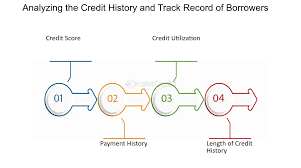Introduction
In Nigeria, getting a business loan can feel like a big deal, but it’s easier than you think with the right approach. Whether you’re starting small or looking to expand, securing a loan could be the boost your business needs. Let’s break it down into simple, practical steps that work in the Nigerian context!
1. Define Your Purpose
Every lender wants to know why you need the money. Is it for buying inventory, expanding your shop, or managing cash flow? Clearly outlining your purpose makes your loan request stronger.
Pro Tip: Be realistic about how much you need. Borrowing only what’s necessary keeps your repayments manageable.
2. Organize Your Documents
Here in Nigeria, lenders will ask for documents that prove your business is credible. These could include:
- Your business registration (CAC certificate)
- A well-written business plan
- Recent bank statements
- Any financial records showing your income and expenses
If your business is informal, cooperatives and microfinance banks might be a better fit since they tend to have more flexible requirements.
3. Leverage Your Reputation
Unlike some countries, Nigeria doesn’t rely on credit scores. Instead, lenders often assess your reputation, financial habits, and relationship with the bank or cooperative. A good history with lenders or proof of reliability can make a difference.
Quick Tip: Build strong relationships with your local bank or financial institution. They are more likely to support someone they know.
4. Choose the Right Loan for Your Needs
Nigeria offers a variety of loan options tailored to different needs:
- Bank Loans: Suitable for larger businesses with good records.
- Microfinance Loans: Perfect for small and medium enterprises.
- Government Loans: Programs like the CBN’s Anchor Borrowers’ Scheme and NIRSAL loans support farmers and SMEs.
- Cooperative Loans: Member-based financial cooperatives, like GTCS, provide easy access to loans with flexible terms.
Did You Know? Some cooperatives also offer mentorship and training to help you manage your loan better.
5. Be Prepared to Negotiate
In Nigeria, interest rates and loan terms vary widely. Don’t be afraid to negotiate for better terms, especially with cooperative societies or microfinance banks. Ask about repayment schedules and ensure the terms align with your business cash flow.
6. Build a Track Record

Even if you’re just starting out, having a record of steady transactions can improve your chances. Regular savings, maintaining a business account, and participating in cooperative activities show lenders you’re serious.
Fun Fact: Some cooperatives prioritize loans for active members. Saving consistently can earn you more trust and better loan access.
7. Check the Fine Print
Before you commit, read and understand the loan agreement. Look out for:
- Interest rates
- Penalties for late payments
- Flexible repayment options
Pro Tip: When in doubt, ask someone knowledgeable—like your cooperative leader or a trusted accountant—to explain the terms.
In Nigeria, securing a business loan isn’t just about funds; it’s about demonstrating your commitment to growth and responsibility. By preparing adequately, leveraging the right networks, and choosing the best loan option, you can take your business to the next level.
Looking for a supportive partner in your financial journey? Join GTCS Cooperative today and unlock the potential to grow your business! Together, we can achieve great things.


